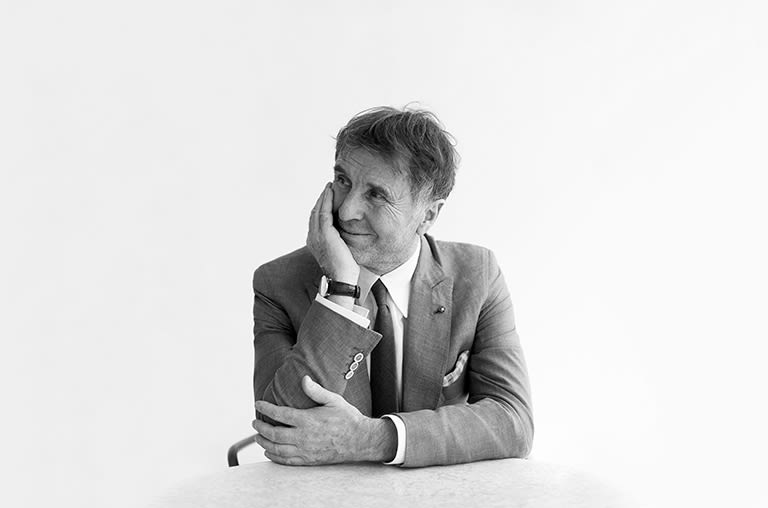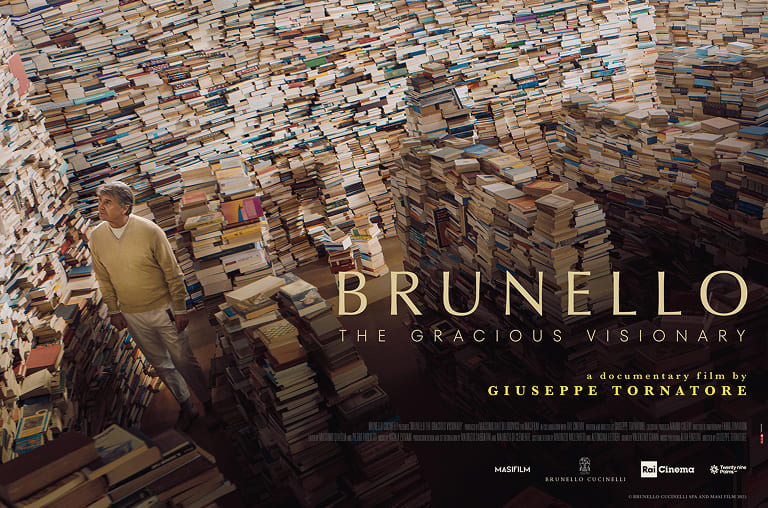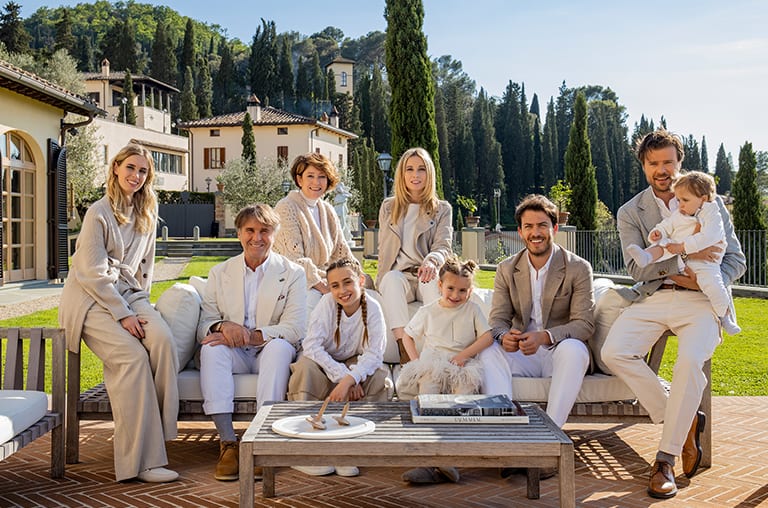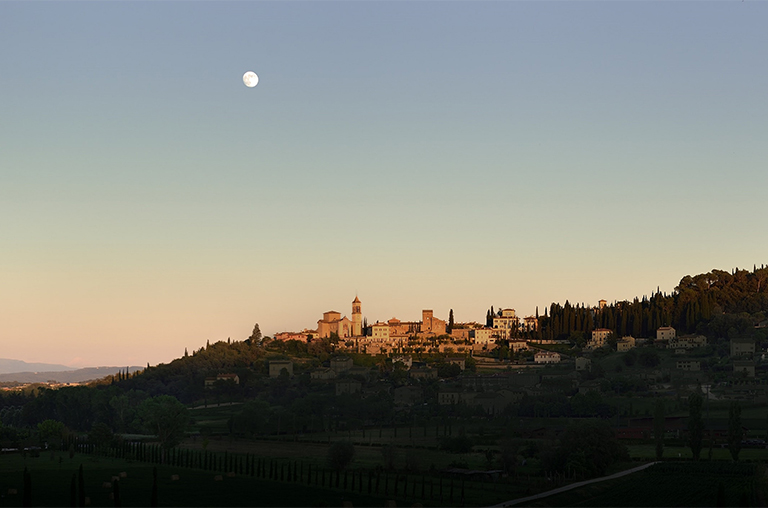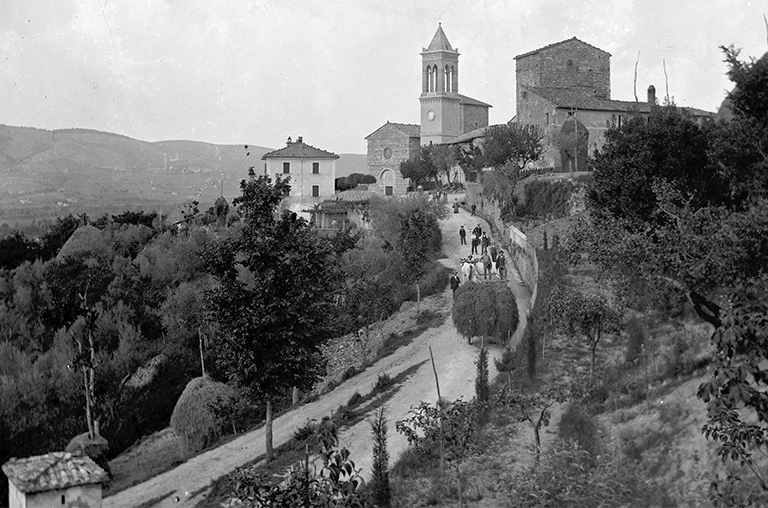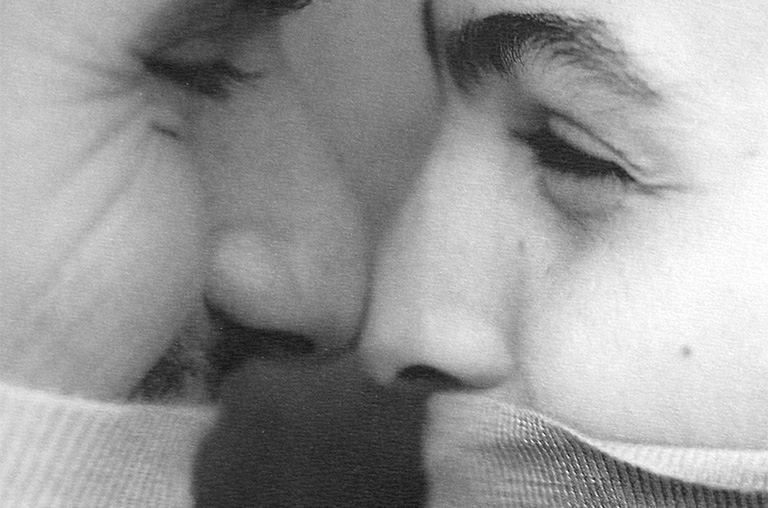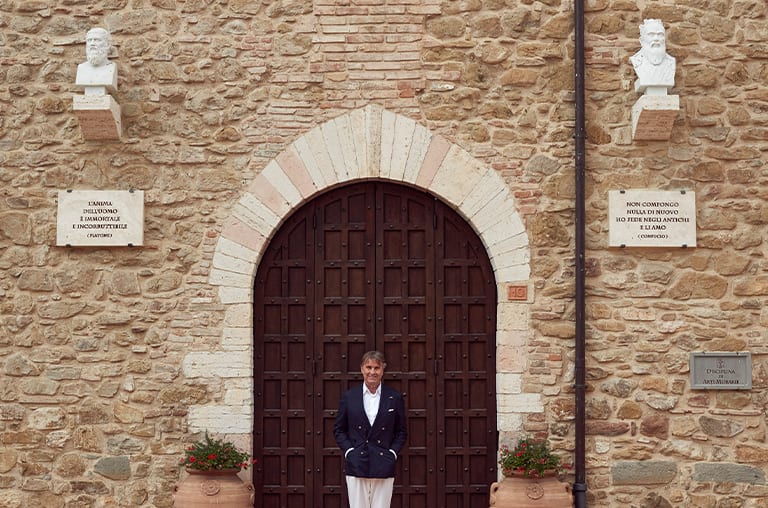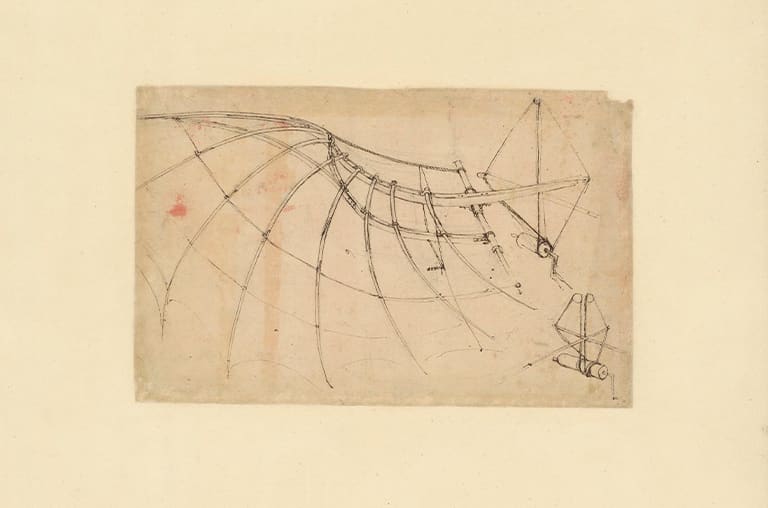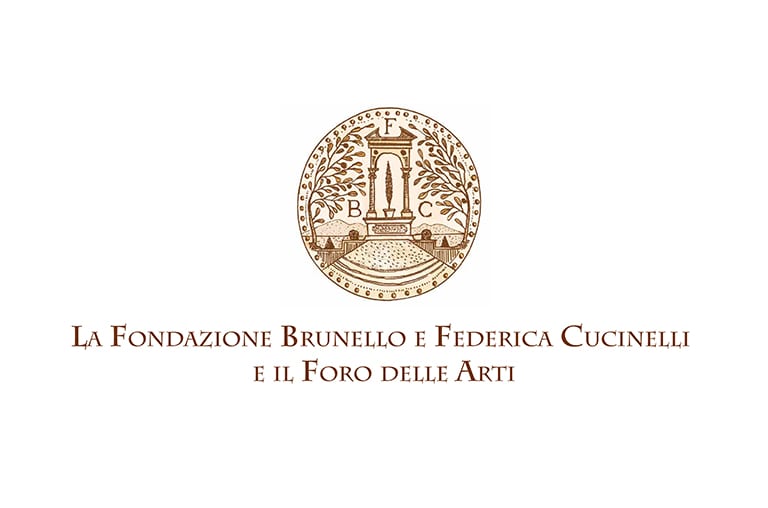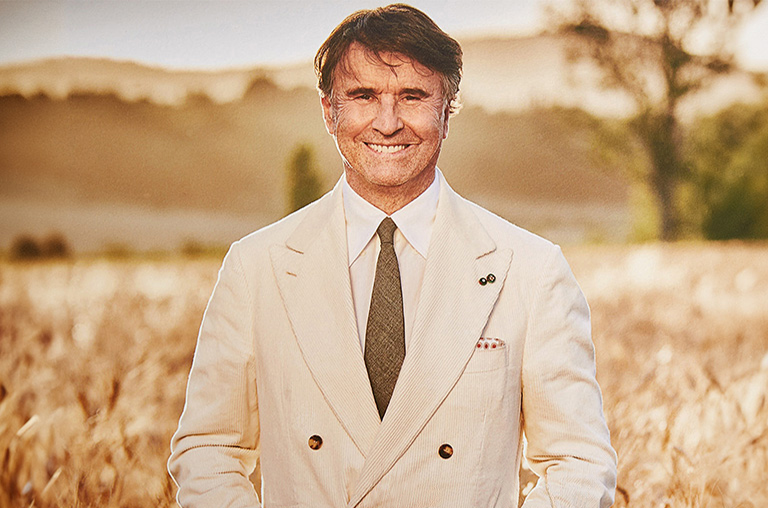label.skip.main.content
Our idea of Humanistic
Capitalism and Human
Sustainability

"Act in such a way that you treat humanity, whether in your own person or in the person of any other, never merely as a means to an end, but always at the same time as an end." (I. Kant)
Speech by Brunello Cucinelli to the World's Great Leaders at the G20
Humanistic Capitalism and Human Sustainability
‘My early years spent in the countryside, my life in a farming family, left the seed and then the sprout of Humanistic Capitalism and Human Sustainability in my soul. Ours, my family's, was a life in contact with nature, because nature gave us everything. Indeed, we did not even have electricity, and we worked the land with animals, and collected rainwater. There was mutual respect between us and nature, and everything was done in harmony with Creation.
I understood that everything we had came from the Earth, and I experienced in this way, quite simply, the thought that the Greek philosopher Xenophanes expressed many centuries ago: "All things come from earth", as I reminded the world leaders gathered for the G20.


In this harmony with the earth, there was a correspondence between what we got from our work and what we gave to our neighbour. I remember that every year, after the harvest, my grandfather would give the first bale of wheat to the community, an ancient symbol of the balance between profit and giving back, and this symbol became one of the cornerstones of Humanistic Capitalism, one of the greatest gifts of my youth and my future.
Other equally fundamental gifts came to me from pain, such as the one I experienced one day when I saw my father's tearful eyes after being humiliated at work. Those eyes were not just something personal, because they spoke to me of an offence to the dignity of the human person, of any human person, and this wound, which remained forever in my soul, became for me the imperative and the will to work all my life to promote the moral and economic dignity of the human being.
I dreamed of a business to make profits ethically, with dignity, without causing suffering to people and offence to Creation, or at least as little as possible. I liked to envisage more pleasant workplaces, where one could enjoy the view outside, and I wanted people to earn a little more, because we are all thinking souls, and because we can no longer turn our backs on poverty.
I was thinking of a job that was fair in terms of working hours, quality and harmony between technology and humanism; I was thinking of a job that could foster the creative spirit and a fair amount of online time, because only in this way can the soul, like the body, be nourished every day.
Plato says that inner order is a virtue, and I have faith in the State: I am convinced of the goodness of respecting laws, even those that we may sometimes like a little less.
I know that our Mother Earth should not be consumed, but used, so that it can regenerate naturally, and until today I have dedicated myself to preserving what exists, to restoring what has been forgotten by time, to leaving a memory of beauty here, in my little homeland that is Solomeo, the “hamlet of cashmere and harmony”.
Slowly, with dedication and joy, we have restored the Castle, the village and its outskirts; the Theatre was born, our secular temple dedicated to the arts, and later, in the valley, the Park for Beauty with the Monument to Human Dignity, the vineyard and the winery, as a token of devoted and grateful children to the great Mother Earth. On Monte della Cima, the Wood of Spirituality completes the spiritual symbolism of the Solomeo area, that is, the dialogue between spirituality, up high, culture, in the Hamlet, and work and nature in the valley.
It is precisely culture that will find its designated home in the new Universal Library of Solomeo, in an eighteenth-century villa currently being restored, right next to the Theatre and the Church of Saint Bartholomew. Love and knowledge of books from all over the world are the foundations that have sustained the greats of all times. In this I was inspired by the ancient Library of Alexandria, created by the King of Egypt, Ptolemy I, and I still think of Emperor Hadrian, according to whom those who build libraries build granaries of the soul for the immense benefit of posterity; Hadrian, who used books as a guide to govern himself and the world around him.


1- Cover of the book "The dream of Solomeo. My life and the idea of humanistic capitalism", by Brunello Cucinelli. Courtesy of the Italian publisher Feltrinelli, 2018
2- “The dream of Solomeo”, back cover. “The eternal values of beauty, humanity and truth are the ideals and the guide of our every deed.”
Interview for the presentation of the book “Solomeo”, 1998

Book cover of "Della mercatura et del mercante perfecto" by Benedetto Cotrugli, 1602. Photo: from the collection of the Mansutti Foundation, Milan
In culture and spirituality, as well as in economics and the environment, are the forms that complete the meaning of Human Sustainability, and sustainability is one with Humanistic Capitalism, as an inclusive concept of everything material and immaterial that concerns the human person. The matrix and lowest common denominator of all this is universal humanism.
I like to think of an inclusive sustainability of material and spiritual values, a concrete place where the environment, the economy, culture, morality and the spirit live together. I am convinced that in this way we can act in a sustainable and complete way, because in spite of technology we live immersed in nature, and as Leibniz put it, nature "does not make leaps", that is, the relationships between things are of continuity and not of disruption. For this reason, we imagine that there should be environmental, economic, technological, cultural, spiritual and moral sustainability.’

"All things come from the Earth", Xenophanes
Pericles’ speech to the Athenians
‘I have always found in Pericles' speech to the Athenians for the fallen soldiers of the Peloponnesian War in 431 B.C. a just moral guide, a model to follow to live life with dignity and respect. A universal idea on which to build the ethical and humane foundations of our company.’

Company Longevity

Allegory of Time and Truth, Giovanni Battista Gaulli, also known as Baciccia (1646-1647), Rome, © 2023, Photo MNP / Scala, Firenze
The following Decalogue is the sublimation of the ideals that inspired it, and the objectives that we want our company to pursue resolutely in the years to come. These are the reasons and philosophical principles by which we wish to conduct our human and business activities, in keeping with the values and moral promises that enlighten us. Longevity means a company that can last two centuries or more by following the rhythm of nature, a company where the highest ethical values are an inspiration for life, so it was natural for us to express our vision of the world in the following ten bullet points.
Our Enduring Ideals for Life and Work
Ten Rules

Brunello Cucinelli, FW 1995 campaign
A Few Testimonies and Projects for
Human Sustainability
The Covid-19 Pandemic
‘Starting from January 2020, Covid-19 has shaped the era we live in in an unprecedented way. When the first rumors about an infection from China started to spread, it was easy to think that this was something similar to the avian flu outbreaks that in the past years had come from the East, and that had soon been regarded as standard seasonal flu outbreaks that happen every year.
Only very slowly did we realize how different the situation was this time. We all lived through this painful stage of human existence, finding ourselves forced to face a pandemic when the virus was already out of control, Covid-19 cases were growing exponentially worldwide, and Covid deaths were endlessly increasing in number. We experienced lockdown, with six billion people forced into isolation.
Nowadays, even if this virus hasn’t been eradicated, it appears to be contained, and even its endless variants seem to have been somewhat “tamed”, to the point that we can probably breathe a sigh of relief. Still, looking back to those moments, only a few can say that in those times they did not suffer a bereavement: a father, a mother, a sibling, a dear friend who passed away. And with each person who passed, a loved one was lost, who represented a human haven where it was possible to find many answers, and give and receive so much help. And as a consequence, how many families were devastated like majestic trees to which the storm had shattered the primary branches!

Brunello Cucinelli with General Figliuolo on visit to the Solomeo Covid-19 vaccination center, May 2021
What are we left with? We are no longer the same; the changes that occurred in the ways of living are obvious in human relations, in fearing excessive proximity, shaking hands, entering overly crowded places. Technology has claimed a larger space than is beneficial, and thus speaking remotely using a computer, which was a necessity during the pandemic, has almost become the norm in today’s world. However, this does not mean we have to give up the freedom to love and be close to one another, to help each other as we were doing before, and as we used to do in the past in the family, which is the cradle of society. A new vision of the world has been born: a sense of hope that accompanies every rebirth and proves that humanity always rises from the greatest tragedies, especially if, during the grieving period, the guiding light of our life, both private and social, has not been lost. It seems that from the fear of being alone, a new conscience has sprung forth that pushes the human community towards togetherness, finding a new faith in the power of being united, like brothers and sisters of the world.
Looking to history, to the teachings that the past gives us, we can say that even the most difficult times come and go: each event goes by, and time brings with it change and rebirth. In our company, in the same way, we tried to face the pandemic holding fast to the wheel and moving towards the only certainties we had left: unity, and the importance of staying close to one another. Reality had manifested in front of our eyes and we couldn’t look elsewhere: even if it was true that we were all in the same stormy sea, it was just as critical to acknowledge that we were not all on the same boat, and it was a moral obligation to throw a line to rescue the smaller boats. We decided at once, since the first days of lockdown, that we would take all the necessary measures to ensure that – to the extent possible and taking into account our limited knowledge of this “unwelcome guest” – all our collaborators and their families could face their daily lives safely, and with respect of their right to health as well as to moral and economic dignity, with no exception. The consequences of this virus began to appear to us in an almost benevolent form, inspired by the words of Saint Augustine when he prayed, “O Lord, who teachest by sorrow”. It was a chance to try to do some good, even in the grip of pain and uncertainty that made it hard for us to sleep. We decided we would treasure the test we were called to face: no one would be fired, everyone would be guaranteed their salary, and we would not ask discounts to the suppliers or artisans or small workshops we had worked with for decades. We then decided to donate the unsold items from our collections to those in need and those taking care of them, creating the “Brunello Cucinelli for Humanity” project. We would use this moment of crisis to further strengthen and deepen the human relations based on mutual respect and trust in which we had always strongly believed.

The teachings of history and the support that in some ways we were receiving thanks to the first messages of our colleagues and friends in China, pushed us to take the long path of the New Time, a time that looks upon uncertainty with eyes that are nonetheless trusting and forward-looking.
We decided to act by searching, anywhere possible, for ventilators and face masks, with the latter that had become a sort of protective shield for all of us.
To defend the community around which we were gathering, we mobilized at once with the University and the Hospital of Perugia to begin a continuous and extended screening of all our collaborators, and in case of need of their families, in order to keep the pandemic under control as much as possible.
Then, on the 9th of November 2020, a date that we will never forget, the scientists announced that the first salvific vaccine was out. And as soon as the government decided to establish a nation-wide vaccination campaign, we gave the Italian Civil Protection the resources needed to set up and open a vaccine center within our Park for Beauty, here in Solomeo, not far from our company’s offices, organizing a medical staff team that was then coordinated by the local administration.
Now that a while has gone by, we remember those of us who have passed away and we keep embracing our entire community, as we are well aware that what was done, for us, is nothing but a natural and needed expression of what it means to be human.
As Albert Einstein said: “The crisis is the greatest blessing for people and nations, because the crisis brings progress. Creativity comes from anxiety as the day comes from the dark night. In the crisis that is inventiveness, discoveries and great strategies”.’

Brunello Cucinelli, Raffaello Napoleone, Agostino Poletto and the Men's Style Department team at Casa Cucinelli in Solomeo for the Pitti Uomo Connect opening ceremony, January 2021
Brunello Cucinelli for Humanity
In 2020, following the temporary closure of retail stores caused by the Covid-19 pandemic, the company launched the initiative “Brunello Cucinelli for Humanity” to donate the unsold items of its collections. With this project, a substantial quantity of handcrafted garments, amounting to approximately 32 million euros, was donated, and distributed to a network of national and international partners, as tangible support to people in dire need. When he presented the project, Brunello Cucinelli’s comment was, “For me, this project that we all define as “intense” seems in some way to raise the dignity of man and to pay tribute to all those who worked at creating these items. It would be a real pleasure for me if this symbolic gesture were taken as a wish for moving towards a new and long-lasting New Time”.
The Himalayan Regenerative Fashion Living Lab Project
Developed in collaboration with the Fashion Task Force of the Sustainable Markets Initiative (SMI)—founded by the then Prince of Wales, now His Majesty King Charles III of the United Kingdom, and chaired by Federico Marchetti—and the Circular Bioeconomy Alliance (CBA), the Himalayan Regenerative Fashion Living Lab project was launched in 2022 thanks to the support of our Casa di Moda. Through this commitment, a contribution is being made to the creation of regenerative fashion landscapes to demonstrate the potential of this industry in the transition to an inclusive, climate-respecting and nature-positive path, in the principle of a new value chain based on the principles of sustainable fashion.
The initiative focuses on the rehabilitation of the natural environment – which is gravely threatened by climate change – as well as of the traditional artisan and manufacturing skills of a number of small local Himalayan communities that for centuries have made their living thanks to the economy derived from cashmere, cotton, and silk.
In 2024, a significant milestone was reached with the production of the first 200 kg of pashmina by the local shepherds’ cooperative. From this material, the company created its first designs: two scarf models, one for women and one for men, which were presented in November of the same year to His Majesty King Charles III of the United Kingdom, during a conference organized by the Circular Bioeconomy Alliance (CBA).
In 2025, reforestation projects were initiated to restore degraded pastures and strengthen food and fodder security for local communities. These efforts were accompanied by participatory dialogues with the communities involved, addressing key challenges and opportunities.
Meanwhile, the production of pashmina by the local cooperative continued with renewed vitality, confirming itself not only as an essential economic resource for the livelihood of families, but also as a precious artisanal heritage—preserving centuries-old traditions while opening new paths for growth and a sustainable future for the entire community.
Our commitment to reduce emissions
The company has embarked on a plan to reduce “greenhouse” gas emissions, applying the principles of the Science Based Targets Initiative (SBTi). This commitment will lead the company to reduce greenhouse gas emissions by 60% in terms of economic intensity and by 70% in absolute terms for Scope 1 and 2 emissions and by 22.5% for Scope 3 emissions over the decade 2019-2028.














